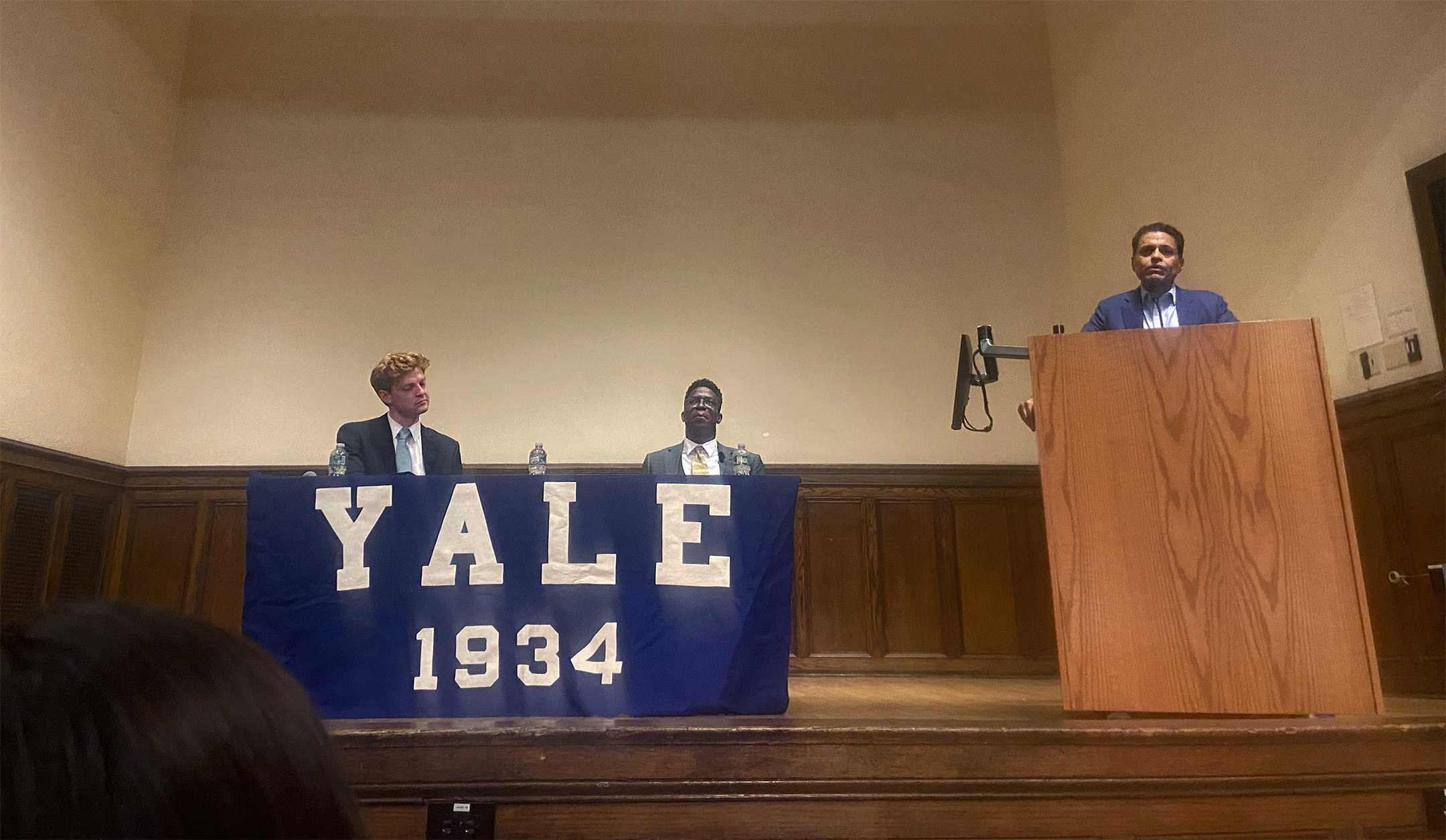Fareed Zakaria argues for globalization at political union debate
The journalist argued that globalization increases people’s choices, critiquing the Trump administration’s move toward isolationist policies.

Emily Akbar, Contributing Photographer
CNN journalist Fareed Zakaria ’86 argued for globalization’s merits Tuesday evening in front of the Yale Political Union on the grounds of economic growth and increased individual freedom.
Zakaria — a former president of the YPU and the host of Fareed Zakaria Global Public Square, a weekly television segment — argued in favor of the resolution “embrace globalization” while refuting President Donald Trump’s isolationist approach to foreign affairs.
“The entire premise of the Trump movement is a kind of rejection of globalization because of the sins it has brought to America,” Zakaria said. “The reality is there is no Golden Age. There are simply people with bad memories.”
Attendees voted 56-18 in favor of the resolution at the end of the debate, which also featured student speakers, though Zakaria’s speech initially drew about 200 students to the event.
In his opening remarks, Zakaria reminisced about his own time as president of the YPU and expressed admiration for the engaged political community at Yale today. He then detailed the historical context of globalization, describing how American free markets rivaled the Soviet Union’s closed communist economy in the 20th century.
Referencing economist Adam Smith, Zakaria said that free and open markets expand not just wealth, but also personal freedom.
Throughout his speech, Zakaria repeatedly refuted anti-globalism sentiment, arguing that contemporary backlash to globalism is not about economics, but rather about anxiety over rapid change.
Referencing the Trump administration’s “Make America Great Again” slogan, Zakaria argued that many Americans may feel comforted by the appeal of returning to simpler times, despite the reality of globalism’s progress.
Shem Haile ’28, who spoke against the resolution, argued that income inequality has grown under globalization largely due to the loss of domestic manufacturing jobs and factory offshoring. Focusing on the social impacts of globalization, Haile pointed to Yale’s host city.
“People flocked to this city to work at plants like Winchester Repeating Arms,” Haile said, referring to a former New Haven-based weapons manufacturer. “But just 20 years ago, Winchester Repeating Arms had to close down due to international competition, and what this has left is a 25 percent poverty rate in New Haven.”
Leo Greenberg ‘26, who also spoke against the resolution, diagnosed Zakaria with “GDP brain,” critiquing his overemphasis on economic indicators like gross domestic product and median household income. Instead, Greenberg advocated in favor of national stability and tradition.
Greenberg highlighted that citizens have the attachments to their homelands, describing these attachments as “human” rather than a “failure to handle change.”
“People are attached to the hometowns where their grandparents are buried. They are attached to professions like manufacturing. They are attached to the customs of a region like Appalachia or the upper Midwest,” Greenberg said.
In a speech favoring the resolution, YPU Secretary Megan Lee ’28 warned against the United States’ isolationist policies in a multipolar world. In one instance, Lee cited that the U.S. imports most of its rare earth minerals from China, which she said demonstrates the need for global cooperation, especially in the tech sector.
“Globalization is inevitable,” Lee said.
While an undergraduate at Yale, Zakaria was a member of the Party of the Right, one of the political union’s member parties.







